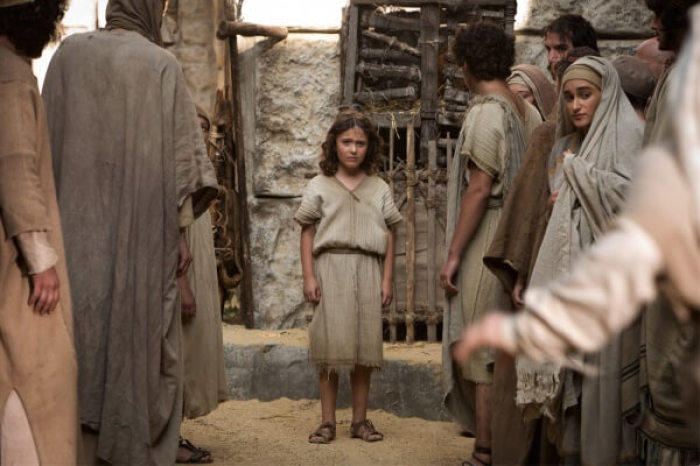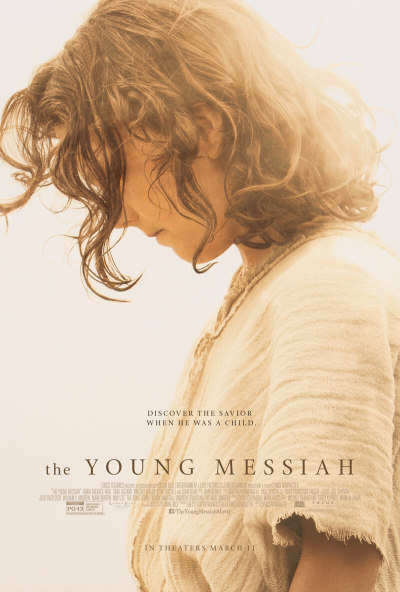Will Conservative Christians Accept the Biblical Fiction 'The Young Messiah'? (Movie Review)

CHICAGO — Often, when I talk to my kids about Jesus, I ask them playful and even thought-provoking questions about Christ as a child, helping them understand that this Messiah we worship — the Creator of the world — once was their age, likely doing some of the very things they do.
"Do you think Jesus chased His friends?" (Yes! — they'll respond)
"Do you think Jesus laughed and playfully wrestled with His siblings?" (Yes!)
Then I'll toss a curve ball: "Do you think Jesus ever disobeyed His parents?" (No!)

Scripture is mostly silent about Jesus' childhood, but a film opening this weekend — "The Young Messiah" (PG-13) — tells the story of Christ as a 7-year-old boy, exploring what life might have been like not only for Him but also for Mary, Joseph and the surrounding community.
While the movie is almost entirely fiction, the writers and the director made every effort to keep it theologically sound — ensuring, for example, that the young Jesus did not do anything that could be construed as sin.
It is loosely based on Anne Rice's book "Christ The Lord: Out Of Egypt," although major changes were made to some of her more controversial scenes so as to keep it acceptable to conservative audiences.
No doubt, plenty of Christians will view "The Young Messiah" with skepticism, wondering how a film with little supporting text in Scripture can be, well, acceptable. I, too, was skeptical at first, but after watching it walked away moved, inspired and even entertained. It is every bit as good as "Risen," another film of biblical fiction that has been well-received by moviegoers.
Young actor Adam Greaves-Neal is simply outstanding as a boy Jesus who carries all the traits we read about in Scripture with the adult Jesus. He is kind, loving, considerate, compassionate and humble. But He is also a boy — and the filmmakers did a nice job of captivating what it might have been like to watch Jesus grow "in wisdom and stature" (Luke 2:52).
We see the human side of Jesus.
"Tell me about the angel," Jesus asks Mary during one emotional scene at the end of the movie, wanting to hear the story of how she discovered she was pregnant.
We also see the divine side of Jesus.
The Christ child in "The Young Messiah" performs a few miracles — Mary, at the end, urges him to stop doing them, out of fear for His safety — and He also displays authority over Satan. In the film, Jesus can visually see Satan around him, even though others can't. During one poignant, powerful moment, Satan creeps near Jesus in bed when the Christ child commands: "Don't touch me! … Never, ever lay your hands on me." And Satan doesn't.
Director Cyrus Nowrasteh, himself a Christian, told me he hopes the film transforms lives and impacts kids. Parents who have watched screeners have told him, "I can't wait to show this to my children." (Although, I might add, it contains some frightening scenes that might disturb very young children.)
"The Young Messiah" is but the latest film to try and "fill in the gaps" in Scripture. The aforementioned "Risen" did that, as did the NBC miniseries "A.D."
So, what should the Christian attitude be toward movies and TV shows that are based (partially or entirely) on biblical fiction? It's an interesting debate.
Brian Godawa, a Christian who is a screenwriter and a popular author of biblical fiction books, says there is a place for movies such as "The Young Messiah."
"When you are reading the Bible, and you are picturing the scenes in your own mind as you read, you are creating fiction in your head that is not in the text," Godawa, the author of the "Chronicles of the Nephilim series," told me. "You are imagining what they look like, what they wear, what the location looks like — all things that are fiction because you don't know what everything looked like or where it happened.
He added that when he writes biblical fiction, "The main moral question to ask when creating those fictional elements is: Does this fit the spirit of the text, if not the letter? Does it maintain the meaning and the message?"
"God did not give us a word formula to recite as the only means of salvation," Godawa added. "He gave us our imaginations to retell that Good News in many different ways."
Entertainment rating: 4.5 out of 5 stars.
Family-friendly rating: 4 out of 5.
"The Young Messiah" is rated PG-13 for violence and thematic elements.
Post-movie discussion topics: biblical fiction – were you comfortable with every element in the movie?; Jesus as a child – what do you think Christ would have been like as a 7-year-old; miracles – do you believe Jesus performed them as a child? Does Scripture give any clues?





























